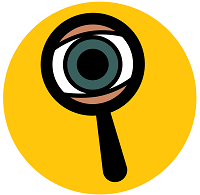What Is Legislative History?
Legislative history research looks at the events leading up to the passage of the law to help figure out legislative intent, that is, what the legislature meant for the law to do.
Why legislative history research should not be your first choice
Federal vs. state legislative history
Getting started on legislative history research
How statutes are created
To better understand legislative history, it is helpful to think about how laws are made. Laws generally start out as bills. A bill will be introduced (that is, brought before the house or senate) by one or more members of the legislature. After the bill is introduced, it will often be sent to a legislative committee for further study. That committee may write a report about the bill, which can be useful in better understanding the purpose of the law. The committee may recommend that the legislature pass the bill as it is or may recommend certain changes to the bill. 
Ultimately, the house and the senate need to agree on identical versions of a bill for the bill to become law. If the house and senate have trouble agreeing on the specific language of the law, a conference committee with members from both the house and the senate will meet to try to work out the differences.
If the house and senate agree on the language, the bill is “enrolled.” The next step is for the Governor (for state law) or the President (for federal law) to approve the bill. If approved, the bill becomes law. If vetoed by the Governor (for Iowa state law) or by the President (for United States law), a two-thirds vote to override the veto must happen in the house and in the senate for the bill to become law.
The paragraphs above are a brief, simplified summary. If you would like more detail, the Iowa legislature has a document that explains how a bill becomes law in Iowa, and the Congressional Research Service has a report that explains the process at the federal level.
Why legislative history research should not be your first choice
A few words of warning on legislative history research: The argument that the legislature intended something based on materials outside the text of the law itself is not viewed favorably by all judges. Legislative history research can also be time consuming and may not ultimately lead to anything that helps you better decide what the legislature meant by a word or phrase. 
For that reason, before you decide to do legislative history research yourself:
-
Carefully read the code section or sections that you have identified as relevant, but also make sure to read surrounding sections. If the meaning of a word or phrase is unclear (courts often call this ambiguous), perhaps another section within that chapter or title of the code gives more information that makes the meaning clearer.
-
Chapter 4 of the Iowa Code discusses interpreting statutes.
-
Research whether any cases have interpreted the section or sections. If so, these cases may answer your questions about the statute.
If you decide legislative history information is necessary, first look to see whether anyone else has already researched the legislative history of your statute.
-
A compiled legislative history does the work of pulling together the various legislative history documents, or at least citations to the documents, for you. This saves you the time of figuring out which legislative documents are connected to a particular law.
-
You may find these resources in print at a library or through a subscription database available at a library.
-
Secondary sources, such as articles or books, may discuss the legislative history of a law.
Federal vs. state legislative history
Federal laws tend to have more legislative history materials available than state laws. If you want to learn more about the legislative history of an Iowa statute, your options will be limited.
Getting started on legislative history research
To begin your legislative history research, you must figure out which act (or acts) created or changed (also called “amended”) the relevant language in your code section. An annotated code can be helpful, because these codes often include more information about the changes different laws made to a code section. This can help you focus on the correct act to investigate. 
Even if you do not have access to an annotated code, you can start exploring the history of a particular code section by looking at the credits of the code section. The credits tell you which laws throughout the years have created or changed (also called “amended”) your code section. You will find the credits for a code section after the text of that section.
When dealing with federal statutes, the Office of the Law Revision Counsel United States Code website is a great place to go to find out where a law came from, as it includes helpful editorial notes about which acts made changes to particular sections and what those changes were.
Once you have figured out which act you need to look at, consider visiting the Iowa Legislature’s website for state law and Congress.gov for federal law. The Iowa Acts will link you out to the Iowa Legislature’s BillBook, which allows you to see different versions of the bill and the bill’s history, with links out to the House and Senate Journals, related documents, and video of the house and senate discussion of the bill.
Congress.gov has a section that collects public laws by Congress. The public law pages include different versions of the bill that ultimately became law, actions taken leading up to the passing of the law, committee reports, and related bills from that session, if any.
Legislative history research can be complex, and the information above does not cover all situations and resources relating to legislative history. If you need more information on legislative history research, ask a law librarian.
